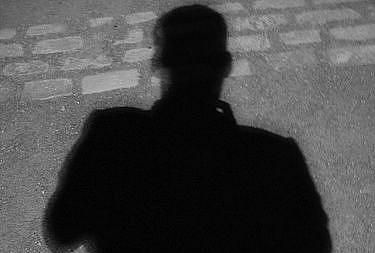The Shadow Practice: Doctor With Medical Board History Draws New Fire

Almost exactly 20 years after Dr. Scott Bickman was first licensed in California, he faces the threat of no longer being able to practice in the state. The Medical Board of California has filed a new accusation against him, the ultimate consequence of which could be revocation of his license. His history of troubles with state and federal authorities highlights the slow and often patchwork nature of medical oversight.
I’ll try to explain how over several posts.
I documented some of Bickman’s troubles in my Shadow Practice series, and I interviewed Bickman at length, too. During that interview, the anesthesiologist told me about how he had first ended up in trouble with the Medical Board of California.
It’s worth examining that first case because it echoes through every subsequent documented problem Bickman has had, begging the question: are authorities paying attention?
Bickman was charged by the Medical Board of California in March 2004 with gross negligence, repeated negligent acts, incompetence, poor record keeping, and unprofessional conduct. The Medical Board records indicate that the charges stemmed from the 2001 death of a patient, known as S.G., following surgery to remove a herniated disc in her back at Sherman Oaks Hospital.
In the Medical Board records, the board faulted Bickman for inappropriate dosing of anesthesia, poor communication with the surgeons, and inadequate evaluation of the patient’s overall health. The patient was obese, which presented particular challenges for the surgery, and the board felt that Bickman had not met many of those challenges. For example, the board wrote that Bickman, “was grossly negligent when he failed to investigate or comment on changes in patient S.G.’s vital signs (i.e. bradycardia, low diastolic blood pressure and low heart rate) during the course of the surgical procedure.”
Bickman told me in an interview that the Board’s case was entirely about record keeping, and that he had tried to keep accurate records about the woman’s surgery by creating a second set of records after the surgery. This is what Bickman told me two years ago about the case.
Q: What were you trying to accomplish by creating a second record?
A: The blood pressure and pulse that I had written down were too high. I knew they were too high, and I knew that this might become a legal case. I knew that people would question it. What I had written down wasn't reflective of the fact that she actually had no pulse and she had no blood pressure. Since the record was so disastrous in terms of how it was looking, I thought I needed to correct the portion of the record where she had coded so that the record accurately reflected what happened to her during that time.
Q: By "coded," you mean when "code blue" was declared and efforts were made to resuscitate her, right?
A: Right.
Q: I'm still not really understanding you. Why were the notes that you took during the surgery itself not accurate to begin with?
A: We were so busy taking care of her that the things I jotted down were not accurate.
Q: Are your notes during your surgeries usually not accurate?
A: No. They are. But this was a difficult case.
Q: So how did you know whether your notes were correct or incorrect?
A: Because the machine was still on, taking her readings, and I could go back and take a peek and see what the numbers really were. The nurse was going to write down whatever I had, but I said, "I don't want you to do that" because I knew that wouldn't be good.
The reason Bickman can say with confidence that the Medical Board’s case ultimately landed on bad record keeping is because that’s how he settled the case. It took the board two years to reach an agreement with him in 2006. In the agreement, Bickman agreed that the board “could establish a factual basis for the charge in the Accusation that Respondent failed to maintain adequate and accurate records.”
He was put on probation starting in September 2006 for just shy of three years.
While he was at the tail end of his probation, he administered anesthesia during a lap-band surgery at the Beverly Hills Surgery Center, according to Medical Board records. Again, the patient was obese. The board included this patient as part of a charge of repeated negligent acts. After the surgery, the patient went into respiratory arrest and had to be given CPR, according to Medical Board records. The board wrote:
The patient was successfully intubated and resuscitated to a normal heart rhythm within five minutes. Paramedics were called, and the patient was transferred to Cedars Sinai Hospital.
So the patient survived this time. But the board has other issues it is raising. I’ll write more about them next week.
Image by Doogan82 via Flickr

